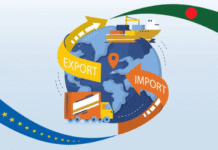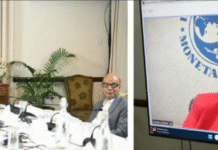
The government has cleared the Delta Plan 2100 as a long-term strategy to prevent floods and soil erosion, manage rivers and wastes, and supply water throughout the century.
The government will initially take 80 projects to implement at six ‘hotspots’ by 2030 at an estimated cost of $37.5 billion in the first phase of the plan.
The National Economic Council endorsed the plan in a meeting chaired by Prime Minister Sheikh Hasina on Tuesday.
The initial projects will include 65 for infrastructure development and the rest for developing organisational capabilities, skills and research, according to Planning Minister AHM Mustafa Kamal.
The projects are expected to add 1.5 percentage points to the annual growth of Bangladesh’s economy by 2030.
“This is the first time Bangladesh has taken such a long-term plan,” the minister told reporters after the meeting.
The large projects like capital dredging of the Padma River under the plan may not end by 2030, according to him.
“Project implementation will continue until 2100. Funding will be regularly allocated for these projects,” he said.
The government is calling ‘hotspots’ the places that have been prioritised in the plan, according to Prof Shamsul Alam, a member of the Planning Commission’s General Economics Division.
The six hotspots are the coastal areas, Varendra or Barind and drought-prone areas, Haor or backswamps and flood-prone areas, hilly areas, river and estuaries region and urban areas.
Water scarcity is the main problem in the Barind and drought-prone region. The water table in this region has dropped to 70,000 to 80,000 feet under the surface, according to Prof Alam.
The government is taking measures to reserve rainwater in the region for irrigation and other uses under the Delta Plan 2100, he said.
Sanitation and shortage of drinking water are the problems in the Haor areas, where the government will dredge rivers to reserve rainwater as well as prevent flash floods, according to Prof Alam.
The plan also includes work to prevent salinity, and cyclone and other natural disasters, Minister Kamal said.
Bangladesh will need around 2.5 percent of its GDP every year to implement the plan. It will need $29.6 billion annually for implementation until 2031.
The Netherlands, which reclaimed 6,000 square kilometres of land after implementing its own delta management plan, is helping Bangladesh execute Delta Plan 2100, the minister said.
Bangladesh, one of the countries vulnerable to climate change effects, initiated the plan three years ago and made it with around Tk 475 million Dutch aid.
Source: Bdnews24.









